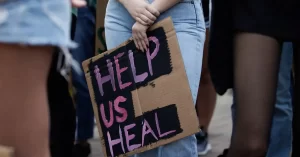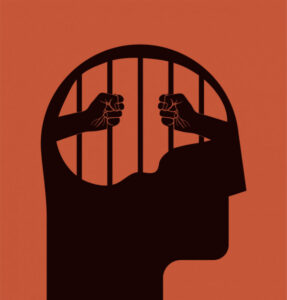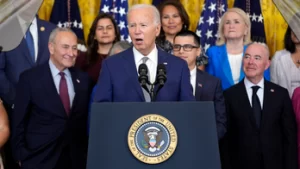A college degree has often been sold as the key to a higher-quality, affluent life. But a new survey from the Pew Research Center suggests Americans have mixed views about that narrative – and data shows people without degrees have seen their earnings increase in the last decade.
Just 1 in 4 U.S. adults said it was extremely or very important to have a four-year degree if you want a well-paying job in the current economy. Forty percent of respondents said it wasn’t too important or important at all.
Mirroring those trends, just 22% of adults said the cost of getting a bachelor’s is worth it even if it means taking out student loans. Nearly half said the cost is only worth it when students don’t have to go into debt.
Given trends in the labor and economy – combined with skyrocketing tuition and student debt levels – the lackluster confidence among Americans isn’t surprising. For several decades until about 2014, for example, the earnings for young men without a degree trended downward. But the past decade “has marked a turning point,” according to the Pew analysis.
Workforce participation for these young men has stabilized and their earnings have risen. The share of them living in poverty has also fallen significantly. In 2011, for example, 17% of young men with just a high school diploma were living in poverty; in 2023, that rate dropped to 12%. Young women’s outcomes also improved in recent years.
The changing circumstances help explain why people’s mindsets about the value of college have shifted. Roughly half of Americans, according to the Pew report, say a four-year degree is less important today than it was in the past to secure a well-paying job. A smaller percentage – about a third – say it’s more important now.
The skepticism is more pronounced among conservative Americans than people who identify as Democrats or somewhat Democrat. Most Republicans (57%) said it was less important to have a four-year degree. Still, Americans from both parties are more likely to say the importance of a college degree has declined than to say it’s increased.
The findings come as the Biden administration works to forgive certain borrowers’ federal student loan debt, which now totals more than $1.6 trillion. On top of barriers to covering tuition, college life has been altered this year by an uptick in culture war tensions on campus, from bans on diversity, equity and inclusion programming to student protests prompted by the Israel-Hamas war. These challenges have fueled debates about whether college is worth it.
Still, the research shows that earnings for degree holders have also trended upward. The income gaps between college graduates and those with just high school degrees or incomplete credentials have persisted.
And while employment prospects for young men without a degree improved in the past decade, their median annual earnings remain below their 1973 adjusted levels.
Author:: Bagombeka Job
CREDIT:: USA TODAY














































